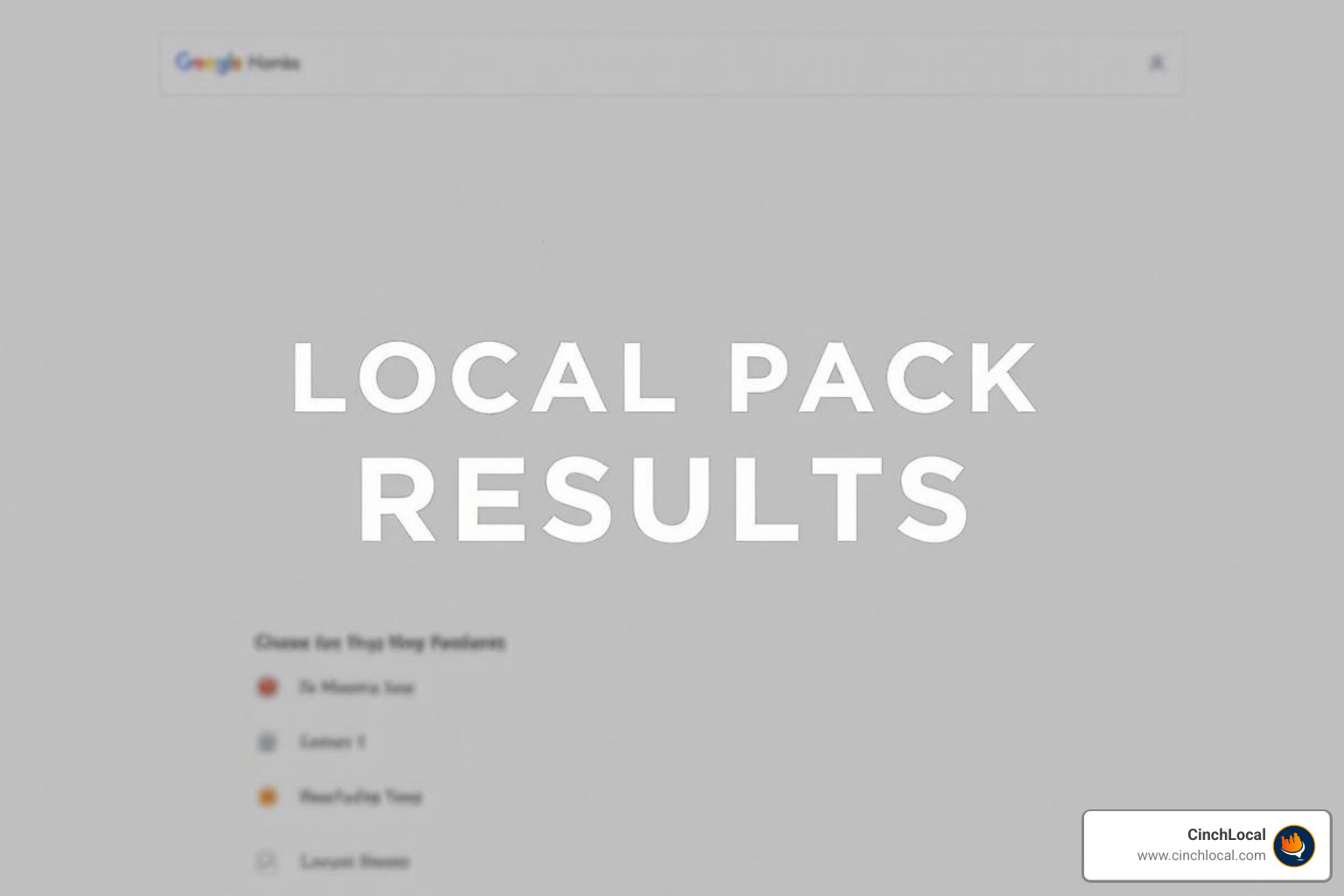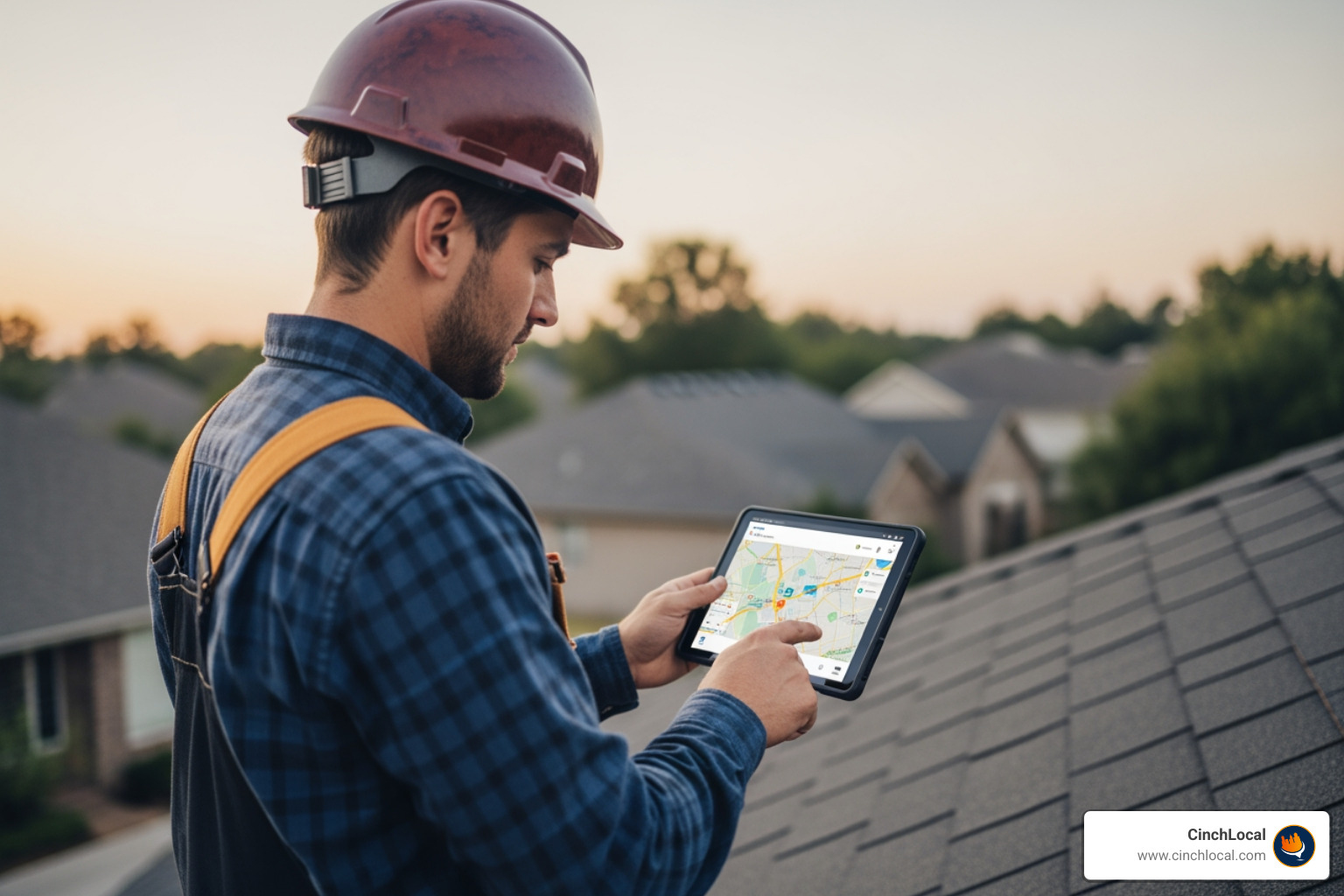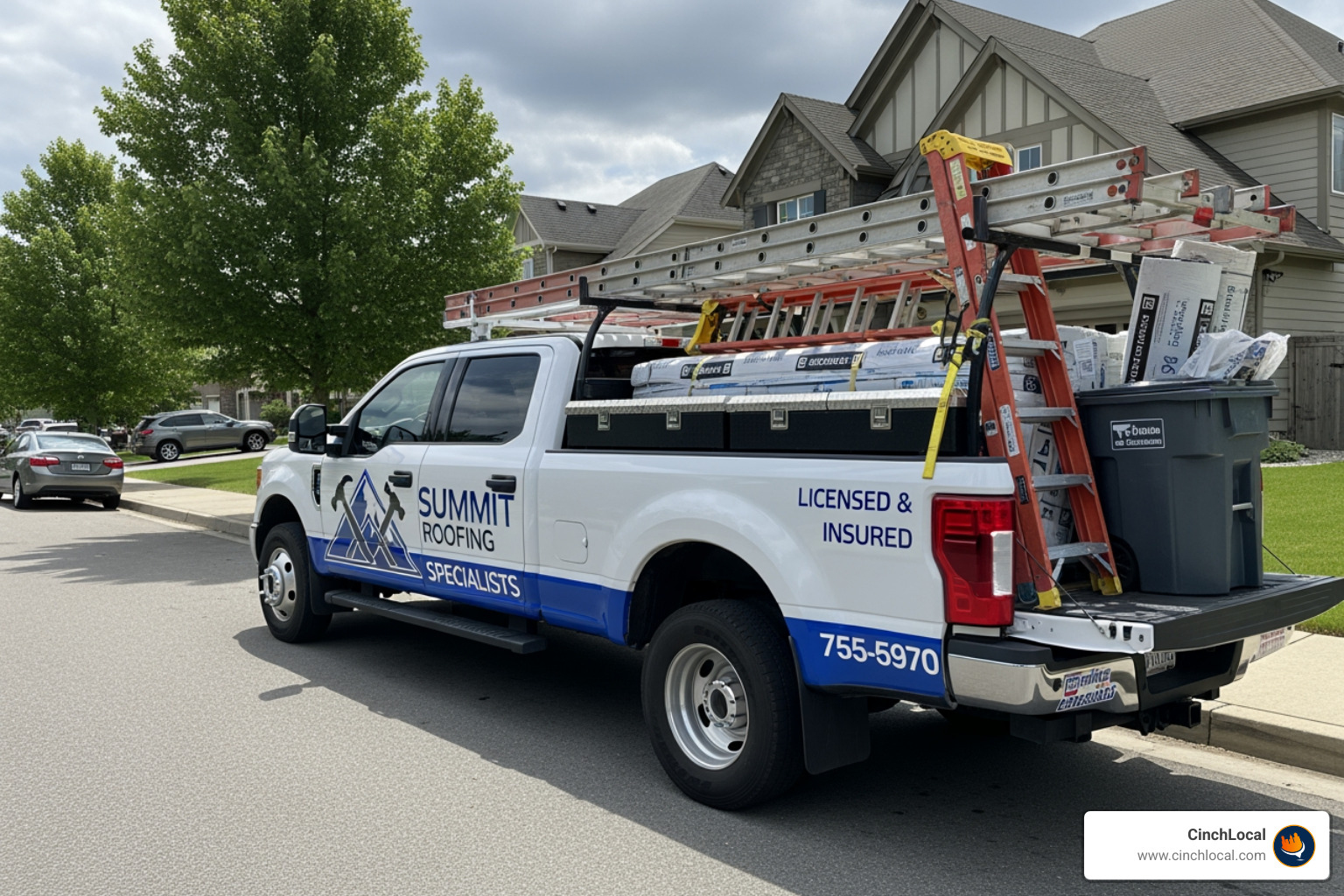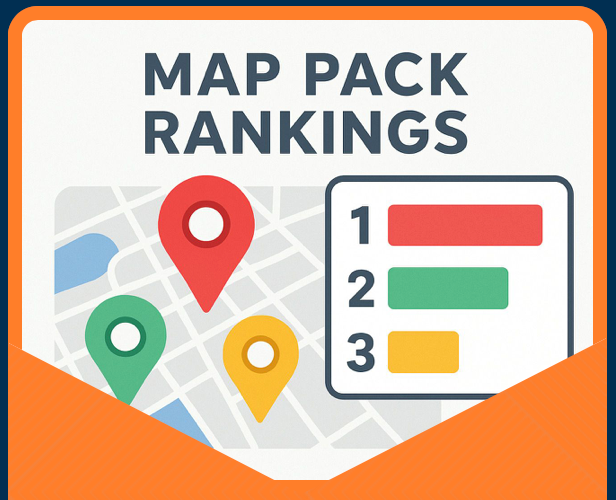
Cary Byrd // Founder of CinchLocal
The Ultimate Guide to AI Content Optimization for Roofers
What is AI Content Optimization for Roofers?

AI content optimization is the process of using artificial intelligence tools to create, improve, and structure your roofing website content so it ranks higher in search results and attracts more qualified leads. Here's what it means for your roofing business:
Key Components of AI Content Optimization:
- Smart keyword research - Finding the exact terms homeowners use when searching for roofing services
- Content creation assistance - Using AI to draft blog posts, service pages, and FAQs about roofing topics
- SEO optimization - Improving page titles, meta descriptions, and content structure for better rankings
- User intent matching - Creating content that directly answers homeowner questions like "How much does a roof replacement cost?"
- Technical improvements - Optimizing your website's code and structure for AI search engines
The digital landscape has shifted dramatically. Where homeowners once relied on Yellow Pages or word-of-mouth referrals, they now turn to Google, voice assistants, and AI-powered search tools to find trusted roofers. As a roofing contractor, your expertise protects homes— a results-driven digital marketing strategy for your business ensures homeowners find you when they need you most.
This shift means traditional SEO tactics aren't enough anymore. Search engines now use AI to better understand what people really want when they search for "roof repair near me" or "best roofing contractor in Dallas." Your content needs to match this new reality.
I'm Cary Byrd, CEO and founder of CinchLocal, and I've spent over a decade helping businesses leverage digital marketing innovations, including ai content optimization strategies that drive real results. My experience building successful online platforms has shown me how AI can transform how roofing contractors connect with homeowners who need their services.
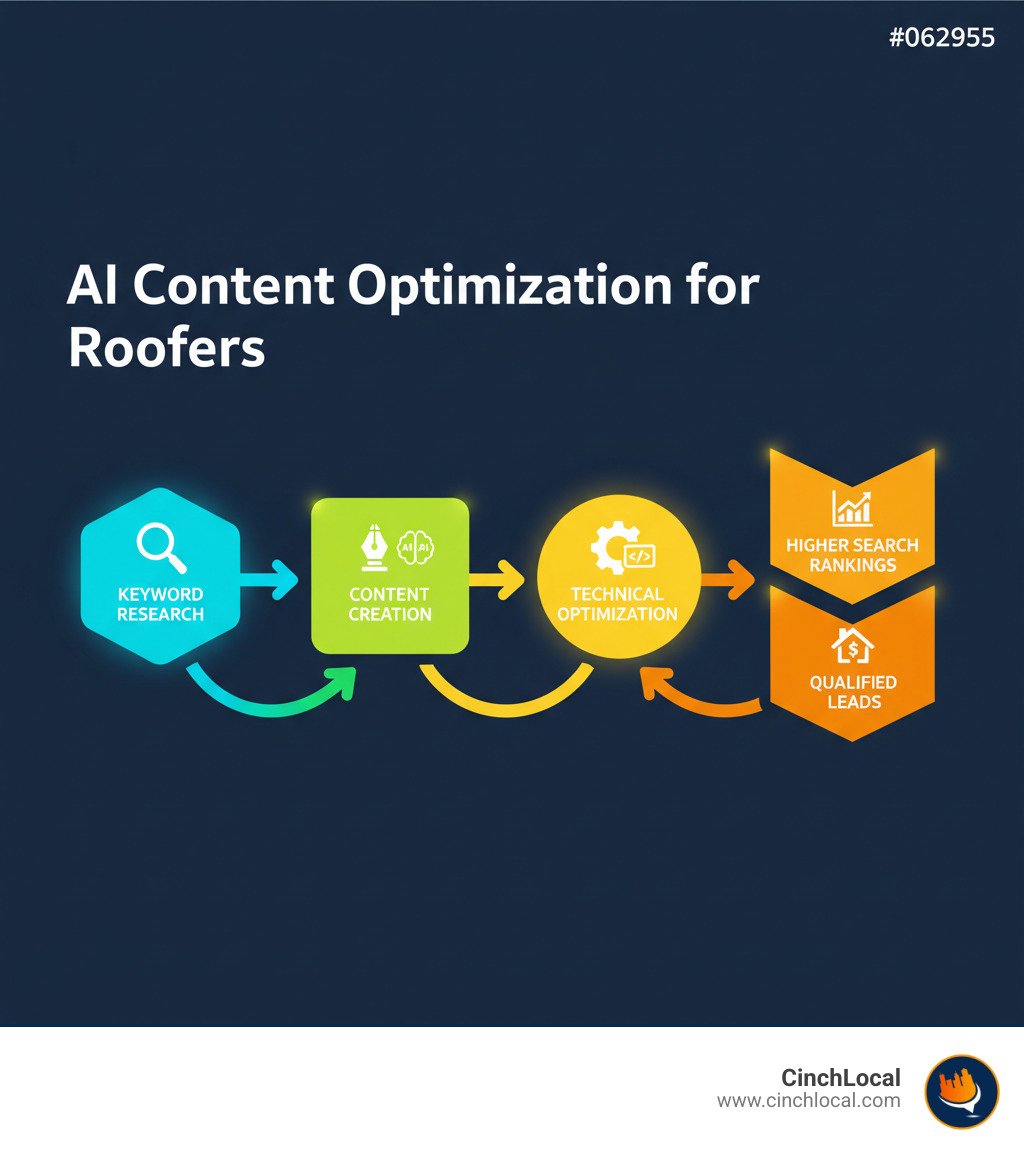
Why AI Content Optimization is a Game-Changer for Roofing Contractors
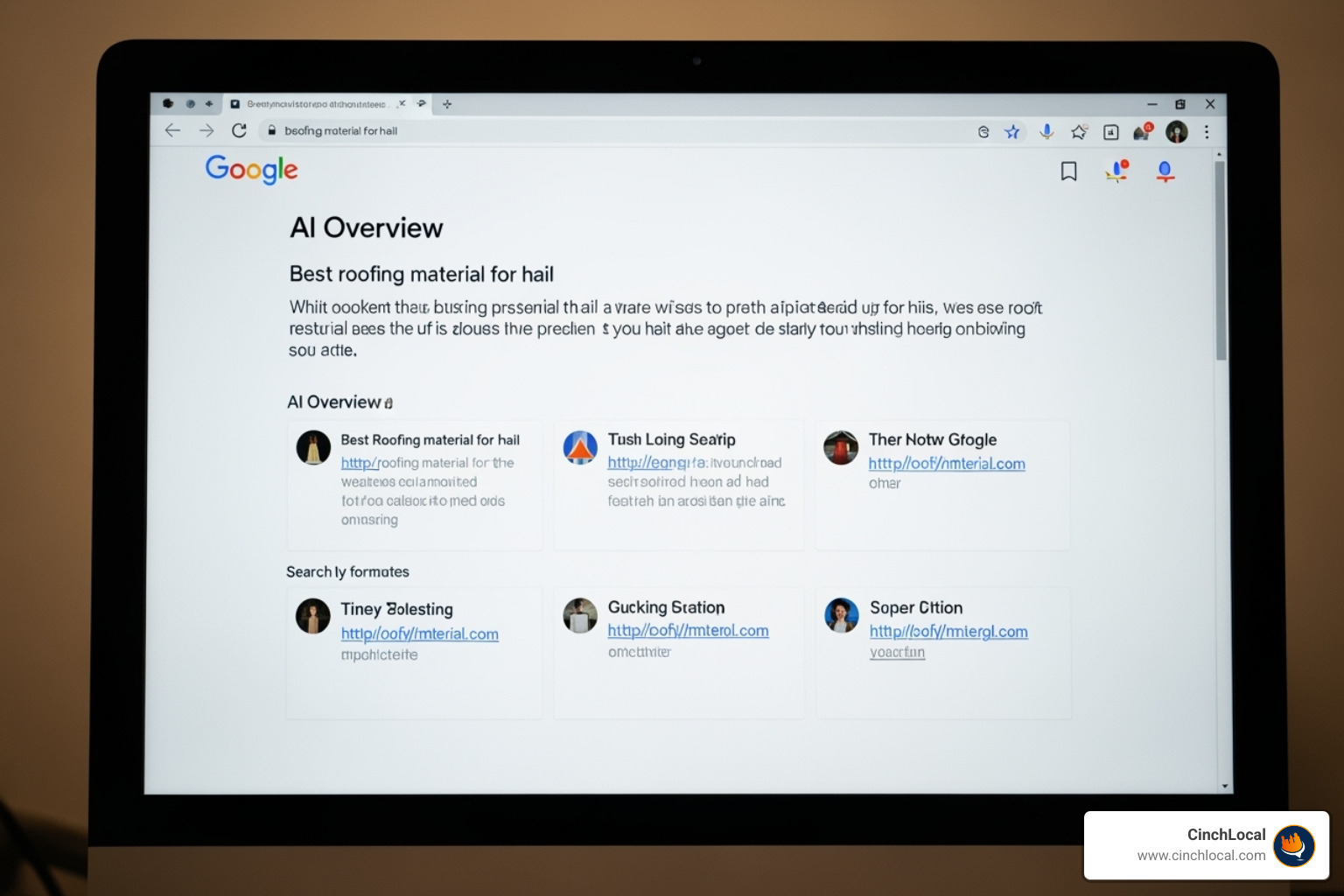
If you're a roofing contractor still relying on traditional SEO tactics from five years ago, you're essentially trying to fix a modern roof with outdated tools. The game has changed, and homeowners are finding roofers in completely different ways than before.
Traditional SEO was like casting a wide net and hoping the right fish would swim by. You'd stuff your website with keywords like "roofing contractor" and "roof repair" and cross your fingers. But here's the problem: when a homeowner searches "What should I do if my roof is leaking during a storm?" traditional SEO often fell short of providing the immediate, helpful answer they needed.
AI content optimization changes everything. Instead of just matching keywords, AI search engines like Google's Search Generative Experience actually understand what homeowners are really asking. When someone types "best roofing material for hail damage," AI doesn't just look for those exact words—it understands they want to protect their home from future storm damage and provides comprehensive answers.
Think about your last few roofing leads. How many came from homeowners who called after reading a generic "roofing services" page versus those who found your detailed blog post about "Signs Your Roof Needs Immediate Attention After a Hailstorm"? The specific, helpful content wins every time.
The Rise of AI Search: Beyond the Blue Links
Here's what's happening in your potential customers' search experience. When homeowners search for roofing help today, they're increasingly seeing AI Overviews —those summary boxes at the top of Google that pull information from multiple sources to create one comprehensive answer.
If your roofing website isn't optimized for these AI systems, you're invisible in the most valuable real estate on Google's search results. But when your content is properly structured and genuinely helpful, AI search engines love to feature it in these prime spots.
The shift is dramatic. Instead of homeowners clicking through ten different roofing websites to piece together information about roof replacement costs, AI search gives them a complete answer upfront—and cites the sources it trusts most. You want to be one of those trusted sources.
Building E-E-A-T (Experience, Expertise, Authoritativeness, Trustworthiness) for Roofing Businesses
Google's E-E-A-T framework isn't just marketing jargon—it's how AI determines whether your roofing business deserves to rank above your competitors. As a roofer, you have a massive advantage here that many don't realize.
Your experience matters more than ever. When you write about "How to Spot Roof Storm Damage," AI search engines can detect the difference between content written by someone who's actually climbed on roofs after hailstorms versus generic content written by someone who's never held a hammer.
Expertise shows up in the details. When you explain why certain shingles perform better in high-wind areas or how proper ventilation prevents ice dams, AI recognizes this technical depth. Your years of solving real roofing problems become your competitive edge online.
Authoritativeness builds when other reputable sites reference your insights. According to Google's official guidance on E-E-A-T, this recognition from industry sources significantly impacts how AI systems evaluate your content.
Trustworthiness comes through in every customer review, every detailed case study, and every transparent explanation of your roofing process. AI search systems are getting remarkably good at identifying which roofing contractors consistently deliver on their promises.
By focusing on genuinely helpful content, you lay the groundwork for optimizing your roofing business's SEO. This approach doesn't just improve your search rankings—it transforms how homeowners perceive your expertise before they even call you.
The numbers tell the story. Home service businesses using AI-powered content strategies report 30-50% increases in qualified leads within six months. More importantly, these leads convert at higher rates because homeowners have already learned to trust your expertise through your content.
Your local competitors who haven't adapted to AI content optimization are essentially fighting with one hand tied behind their backs. While they're still trying to rank for basic terms like "roofer near me," you can dominate the specific, high-intent searches that homeowners actually use when they're ready to hire someone.
The roofing contractors who understand this shift aren't just getting more leads—they're attracting better clients who appreciate their expertise and are willing to pay for quality work.
Practical AI Content Optimization Strategies for Roofers
As a roofing contractor, you know that timing is everything. When a homeowner's roof starts leaking at 2 AM during a storm, they're not casually browsing—they need help now. The same urgency applies to how they search online. AI content optimization helps you be there exactly when they need you most.
Let's explore the specific strategies that will transform how homeowners find your roofing business online.
Using AI to Find What Homeowners are Searching For
Here's something that might surprise you: when homeowners search for roofing help, they rarely start with "roofing contractor near me." Instead, they type things like "why is water dripping from my ceiling" or "brown spots on my bedroom ceiling after rain."
AI-powered keyword research takes you inside the homeowner's mind. These tools analyze millions of real searches to reveal exactly how people describe their roofing problems. Instead of guessing what terms to target, you'll know for certain what homeowners in your area are actually typing into Google at 3 AM when they find a leak.
Traditional keyword tools might tell you to target "roof repair," but AI digs deeper. It finds secondary keywords like "emergency roof tarping" and long-tail phrases like "how much does it cost to fix a small roof leak in Atlanta." These longer, more specific searches often come from homeowners who are ready to hire someone—exactly the leads you want.
Building keyword clusters is where AI really shines for roofing contractors. Instead of creating separate, disconnected pages, AI helps you group related searches into comprehensive topic areas. For example, around "storm damage," you might create content covering hail damage identification, insurance claim processes, emergency repairs, and full replacement timelines.
Here's a real example: Rather than just targeting the broad term "cost to replace roof," AI might reveal that homeowners in Dallas frequently search for "asphalt shingle repair cost in Dallas" or "how much does a new roof cost with insurance." These specific queries indicate someone much further along in their decision-making process.
Creating content that answers specific homeowner questions helps you develop creative roofing blog ideas that attract customers. AI can generate topic ideas custom to your local market —suggesting posts like "Preparing Your Tennessee Roof for Ice Storms" or "Why Georgia Homeowners Should Inspect Their Roofs After Summer Storms."
AI-Assisted Content Creation for Your Roofing Website
You didn't become a roofer to spend hours writing blog posts. But here's the thing—homeowners need information before they're ready to call, and AI can help you create that content without sacrificing your evenings and weekends.
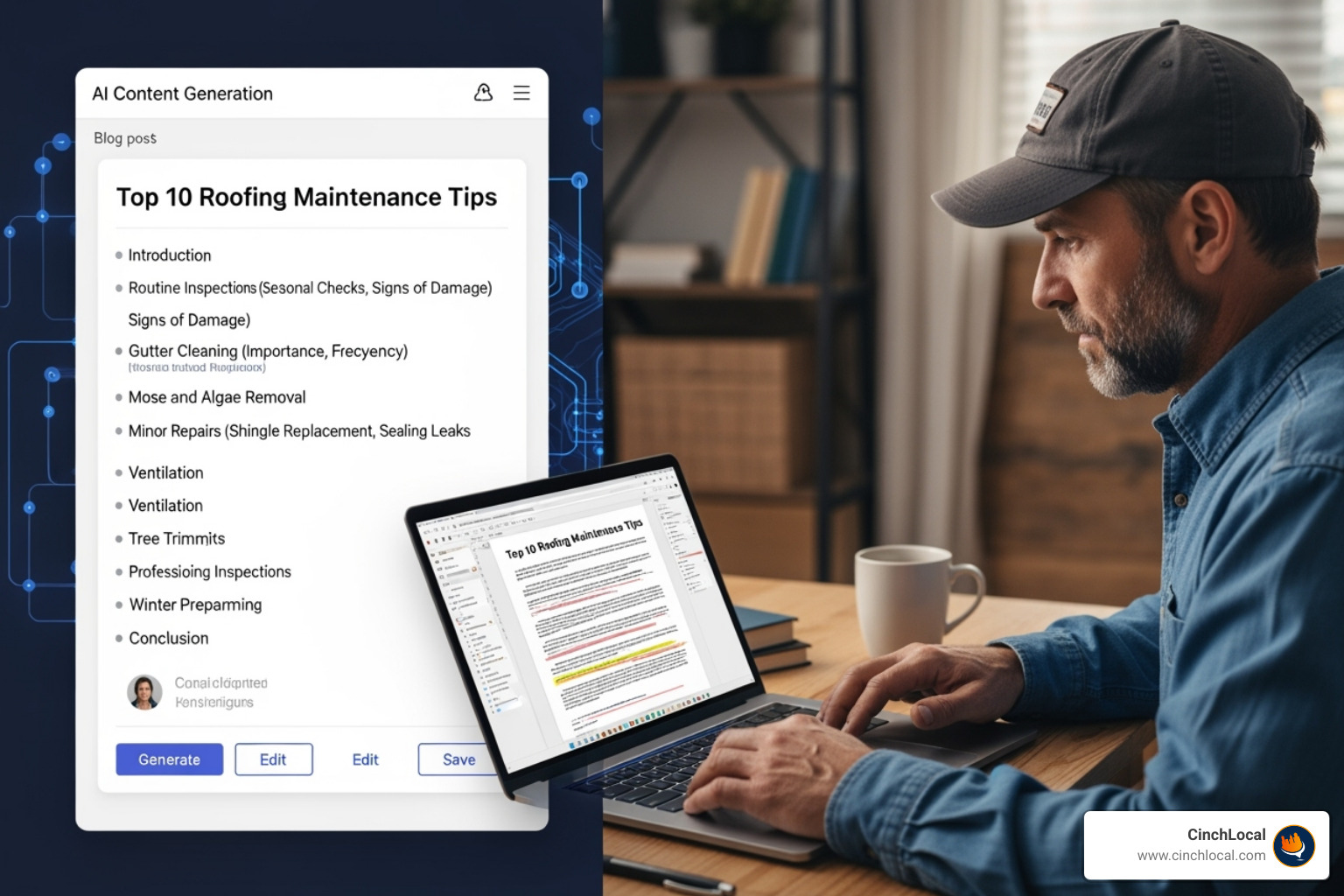
Using AI for first drafts and outlines transforms content creation from a dreaded chore into a manageable task. Feed an AI tool a topic like "What homeowners should know about roof warranties," and within minutes you'll have a structured outline or even a rough first draft. Your job becomes adding your professional insights, local expertise, and real-world examples—the stuff that actually converts browsers into customers.
Optimizing page titles and meta descriptions might seem like small details, but they're your first impression in search results. AI can help craft compelling titles under 60 characters and descriptions around 105 characters that make homeowners want to click your link instead of your competitors'. The difference between "Roof Repair Services" and "Emergency Roof Repair in Dallas - 24/7 Storm Damage Response" is often the difference between getting the call or not.
Improving readability for homeowners is crucial because roofing terminology can overwhelm people. AI helps translate your expertise into language that makes sense to someone who's never been on a roof. Instead of "membrane penetration failure," AI might suggest "holes in your roof's protective layer." Clear communication builds trust, and trust gets you hired.
While AI can help generate drafts, your real-world experience is what makes your content trustworthy—a concept explored in AI can't kill anything worth preserving: a look at AI's writing prowess. The goal isn't to replace your expertise but to help you share it more effectively.
A Roofer's Guide to On-Page SEO with AI Content Optimization
Think of on-page SEO as organizing your toolbox—everything needs to be in the right place so you can find what you need quickly. AI helps organize your website content the same way, making it easy for both search engines and homeowners to find exactly what they're looking for.
Identifying content gaps specific to roofing topics is like spotting missing shingles before they cause bigger problems. AI tools scan your website and compare it to what's ranking well for roofing searches in your area. Maybe you have great content about roof installation but nothing about maintenance schedules or warranty claims—gaps that could be costing you leads.
Finding internal linking opportunities within your site helps search engines understand how your services connect. AI can identify natural places to link your "What to Do After a Hail Storm" blog post to your "Storm Damage Repair" service page, guiding worried homeowners directly to your solution. This strategic internal linking is a core part of a successful roofing SEO strategy.
Here's a practical example: AI might find that your blog post about insurance claims would benefit from linking to your emergency repair services page. This not only helps homeowners find immediate help but also tells Google that these topics are related, strengthening both pages' rankings.
Optimizing for SERP features like featured snippets and FAQs puts your answers at the top of search results. When someone searches "how long does a roof last," your content could appear in that coveted answer box above all other results. AI helps structure your content with clear questions and concise answers that search engines love to feature.
The beauty of AI content optimization for roofing contractors is that it handles the technical details while you focus on what you do best—protecting homes and serving customers. AI streamlines the entire process, from identifying what homeowners are searching for to structuring your expertise in ways that search engines can easily understand and recommend.
Getting Technical: Preparing Your Roofing Website for AI Search Bots
As a roofing contractor, you know that even the best materials won't perform properly without a solid foundation. The same principle applies to your website—no matter how great your content is, it won't reach homeowners if AI search bots can't properly crawl and understand your site.
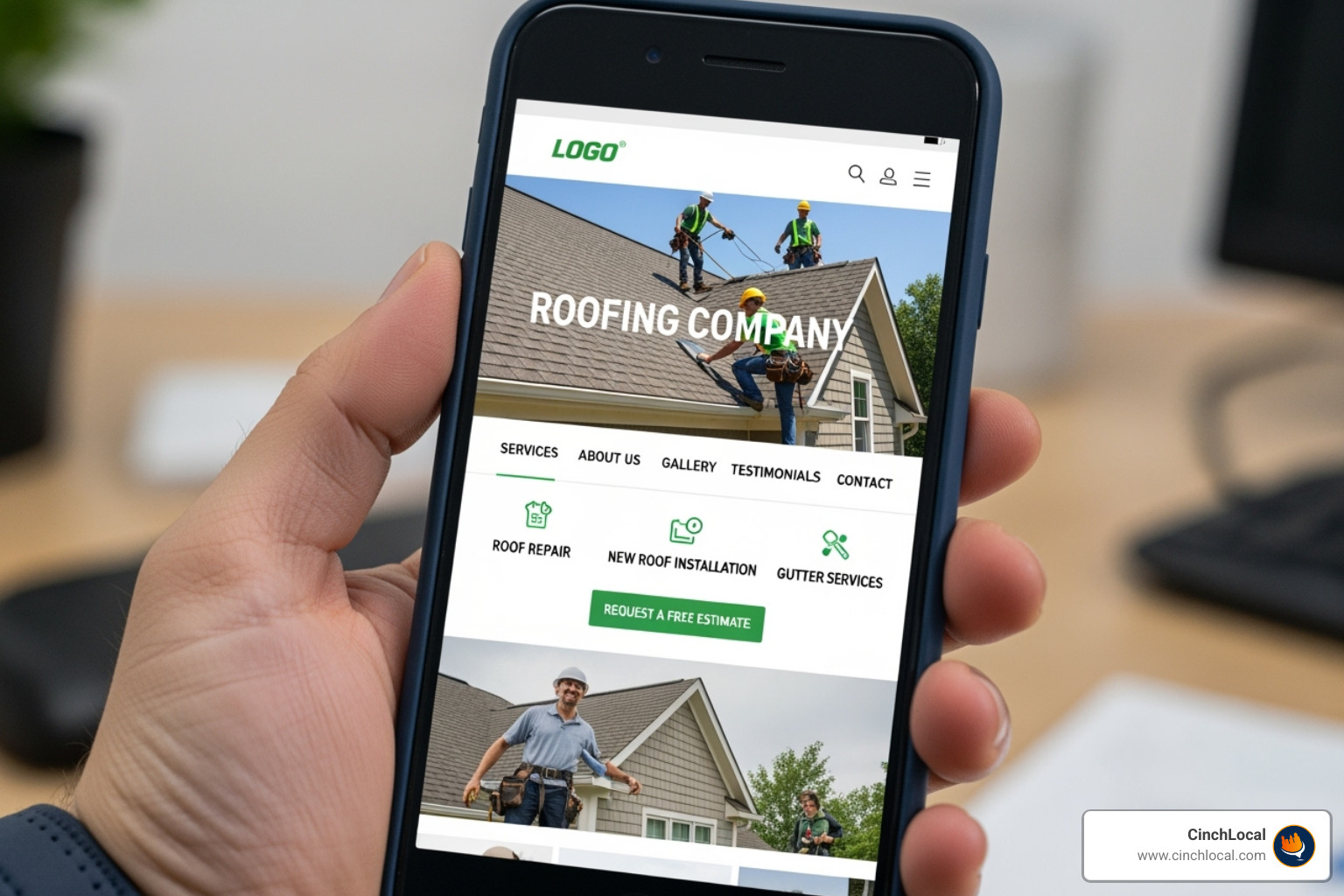
AI crawlers are fundamentally different from the traditional search bots you might be familiar with. While old-school crawlers simply looked for keywords on your roofing pages, today's AI crawlers actually try to understand what your content means. They analyze context, relationships between different pieces of information, and even the sentiment behind your customer reviews.
Here's what makes this crucial for your roofing business: if these AI crawlers can't properly access or understand your website, you become invisible when homeowners ask questions like "Who's the best roofer near me for storm damage?" Your expertise won't matter if the AI can't find it.
Website speed has become even more critical in the AI era. Think about it—when a homeowner searches for emergency roof repair at 2 AM during a storm, AI systems have incredibly tight timeouts (often just 1-5 seconds) to gather information from your site. If your pages load slowly, the AI might skip your content entirely or only capture part of it. This means you could lose out on those urgent, high-value leads simply because your site wasn't fast enough.
Most of your potential customers are searching on their phones while standing in their driveway, looking up at a damaged roof. Mobile-first indexing means AI crawlers primarily judge your site based on how it performs on mobile devices. Your desktop site could be perfect, but if your mobile version is clunky or slow, you're essentially invisible to AI search.
This is where structured data becomes your secret weapon. Think of structured data as speaking directly to AI in its native language. Instead of forcing the AI to guess what your content means, you're explicitly telling it "This is my business name, this is my service area, these are my specialties."
For roofing contractors, the most powerful structured data types include LocalBusiness schema , which clearly defines your company details, service areas, and contact information. The RoofingContractor schema specifically tells AI systems that you're a roofing specialist, not just a general contractor. When you mark up your FAQ pages with FAQPage schema , you're giving AI the exact questions and answers homeowners need, making your content prime material for AI-generated responses.
Roofing websites using structured data see a 30% increase in organic clicks compared to those without it. You can dive deeper into implementation using Google's official documentation on structured data and explore the specific Schema.org RoofingContractor markup for your industry.
Your robots.txt file requires a delicate balance in the AI era. You want to allow legitimate AI search agents (like those powering real-time searches) to access your content while being cautious about bots that might be scraping your content for training purposes. The key is allowing major AI search agents like OAI-SearchBot and ChatGPT-User while maintaining control over how your content is used.
Modern AI agents are becoming remarkably sophisticated—they can actually "use" your website much like a human visitor. They can click buttons, fill out contact forms, and steer through your service pages. This means your site needs clear interactive elements and consistent navigation that both humans and AI can easily follow. Avoid aggressive pop-ups or complex login requirements that might prevent an AI agent from accessing your core roofing content.
However, current AI crawlers still have notable limitations that affect roofing websites. Most can't render JavaScript effectively, meaning if your site relies heavily on complex scripts, much of your content might be invisible to AI. Additionally, these crawlers can be surprisingly inefficient—sometimes 47 times less efficient than traditional crawlers—and about 34% of their requests result in errors.
The importance of a clean site structure as a foundation for SEO for contractors cannot be overstated. When your website's technical foundation is solid, your AI content optimization efforts can truly shine, ensuring homeowners find your roofing expertise exactly when they need it most.
Frequently Asked Questions about AI Content Optimization for Roofers
As roofing contractors, you've built your reputation on solid foundations and reliable service. When it comes to AI content optimization , you naturally have questions about how this technology fits into your business strategy. Let's tackle the most common concerns we hear from roofers like you.
Can AI completely write my roofing blog posts for me?
Here's the truth: AI can be an incredible writing partner, but it can't replace the wisdom you've gained from years on rooftops and dealing with homeowners. Think of AI as your most efficient apprentice—great at handling the groundwork, but still needing your expertise to get the job done right.
AI works best as your content assistant. It can knock out first drafts, create detailed outlines, suggest compelling headlines, and even dig up relevant statistics about roofing trends. This is fantastic for those moments when you're staring at a blank page, knowing you have valuable insights to share but struggling to get started.
But here's where your human expertise becomes irreplaceable: AI doesn't know what it's like to diagnose hail damage or explain to a worried homeowner why their insurance claim was denied. It can't draw from real-world experience installing metal roofing in Georgia's humid climate or navigating Ohio's building codes.
Your local knowledge and brand voice are your competitive edge. When you mention specific neighborhoods in your service area, reference local weather patterns, or share a story about a challenging repair job, you're creating content that no AI can replicate. Homeowners connect with authentic experiences, not generic advice.
The goal is to open up your inner blogger with AI's help, using technology to amplify your expertise rather than replace it. Always fact-check AI-generated content and add your personal touch—that's what transforms good content into great content that converts leads.
Will using AI for my content hurt my Google rankings?
This concern keeps many roofing contractors up at night, but Google's position is actually quite reassuring. The search giant cares about quality and helpfulness above all else —not whether a human or AI wrote your content.
Google's official stance on AI-generated content is crystal clear: if AI helps you create genuinely helpful content that serves your audience, you're in good shape. The problems arise when contractors try to game the system with low-quality, mass-produced content that adds no real value.
The key difference lies in your approach. AI-assisted content involves your oversight, editing, and the addition of your unique insights. You're using AI to improve your expertise, not replace it. Low-quality AI content, on the other hand, is often published without review, lacks originality, and fails to answer homeowners' real questions.
Focus on creating content that genuinely helps homeowners. When you use AI to draft a post about "Signs Your Roof Needs Immediate Attention" and then add your professional observations, local examples, and actionable advice, you're creating valuable content that Google wants to reward.
Google's algorithms are designed to surface the most helpful, trustworthy information for users. If your AI content optimization strategy prioritizes user experience and demonstrates your roofing expertise, you're aligned with exactly what search engines are looking for.
How does AI content optimization help me get more local roofing leads?
For roofing contractors, every piece of content should ultimately serve one purpose: connecting you with homeowners who need your services. AI content optimization excels at making these connections happen more frequently and effectively.
AI boosts your local SEO efforts by helping you create content that speaks directly to homeowners in your service areas. Instead of generic "roof repair" content, AI can help you develop location-specific pieces like "Storm Damage Repair for Atlanta Homeowners" or "Why Metal Roofing Works Best in Tennessee's Climate."
When homeowners search for "roofers near me" or "emergency roof repair" plus their city name , AI-optimized content ensures your business appears prominently. This involves creating detailed service pages, publishing localized blog posts that address regional concerns, and maintaining content that supports your Google Business Profile.
Your website content directly feeds your local search visibility. The comprehensive service descriptions, frequently asked questions, and customer testimonials on your site provide Google with rich information to display in local search results. This makes your business listing more informative and appealing to potential customers.
The results can be dramatic. We've seen how daily content publishing can triple leads when roofing contractors consistently address local homeowner concerns. By answering questions like "What should I do if my roof is leaking during a storm?" or "How much does roof replacement cost in my area?", you position yourself as the go-to expert in your market.
A strong content strategy supports every aspect of your digital presence , from your website rankings to your Google Business Profile performance. When homeowners find helpful, locally-relevant content on your site, they're more likely to trust you with their roofing project.

Conclusion: Future-Proof Your Roofing Business with AI Content Optimization
The digital landscape is constantly evolving, and AI is at the forefront of this change. For roofing contractors, embracing AI content optimization isn't just an option; it's a necessity for staying competitive and securing your future online.
We've covered a lot today, from understanding what AI content optimization entails and how it differs from traditional SEO, to practical strategies for keyword research, content creation, and technical website preparation. We've also addressed common concerns, emphasizing the importance of human expertise, ethical AI use, and the profound impact AI can have on generating local leads for your roofing business.
AI is a powerful tool to support—not replace—your expertise. It's about working smarter, reaching more homeowners, and providing them with the clear, helpful information they need to choose your business. By integrating AI into your content strategy, you're not just optimizing for today's search engines; you're building a resilient, future-proof online presence.
At CinchLocal, we integrate advanced AI strategies into our marketing systems to help roofing contractors dominate their local markets. We understand the unique challenges and opportunities of the roofing industry, and we're here to help you leverage the power of AI to grow your business. Don't let the future of search pass your roofing business by. Accept technology, accept innovation, and watch your business thrive.
Want Us to Uncover Hidden 'Footprint Gaps' And Critical Blind Spots That’s Quietly Draining Calls, Jobs, and Profits?
Simply Fill Out The Form Below:




